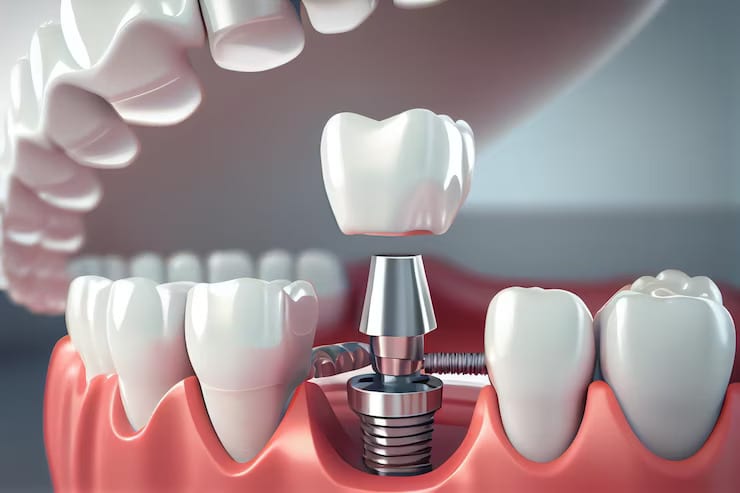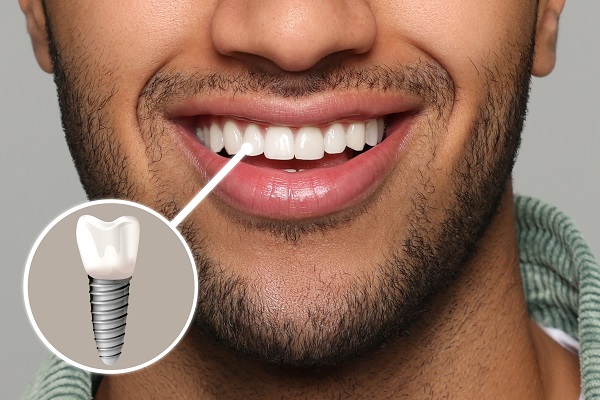Smile Care Granville OH Frequently Asked Questions About Dental Implants
Smile Care Granville OH Frequently Asked Questions About Dental Implants
Blog Article
Orthodontics Galena OH Full Mouth Dental Implants: An In-Depth Overview
Dental implants have emerged as a preferred choice for people looking for a long-term solution to tooth loss. One important facet of understanding dental implants entails their impact on adjacent teeth. This is especially essential for making certain the health and longevity of the whole dental structure.
When a dental implant is placed, it mimics the operate of a natural tooth root. By doing so, it helps preserve the integrity of the surrounding bone structure. Natural teeth depend on a balanced, interconnected system for help, and dental implants can contribute positively to that dynamic. The stability offered by the implant allows for higher distribution of bite forces, which may prevent undue stress on adjacent teeth.
Smile Care Johnstown OH Affordable Dental Implants: Finding the Best Value
In cases where a tooth is missing, the neighboring teeth could shift into the vacant space. This shifting can lead to misalignment and numerous different issues. By placing a dental implant, the risk of this shifting is lowered, because the implant acts as a placeholder that preserves the natural alignment of surrounding teeth. This preventive impact is essential for long-term oral health and performance.
Another necessary consideration is bone loss. When a tooth is misplaced, the jawbone in the area can start to deteriorate because of a scarcity of stimulation. Dental implants assist prevent this bone loss by offering the necessary stimulation to the jawbone, very like a natural tooth root would. This preservation of bone not only helps the implant itself but additionally contributes to the stability of adjacent teeth.
The kind of fabric utilized in dental implants, usually titanium, has a singular property of osseointegration, that means it fuses with the bone over time. This integration supplies a sturdy basis for the bogus tooth whereas guaranteeing that the implant doesn’t negatively have an result on surrounding constructions. As the implant integrates, it creates an setting that contributes positively to the health of the adjacent teeth.

Regular dental check-ups play a vital role in monitoring the influence of dental implants on adjacent teeth. Professional assessments may help identify any issues which will come up, ensuring prompt remedy and sustaining the health of the entire dental arch. These evaluations might embrace X-rays to examine for bone density and the general condition of the implant and surrounding teeth.
Pediatric Dentist Columbus OH The Benefits of Dental Implants: Why Choose Them?
Oral hygiene practices are very important for individuals with dental implants. Proper brushing and flossing habits not only contribute to the longevity of the implant but also be certain that adjacent teeth remain healthy. Food particles and plaque that accumulate across the implant may cause problems, including peri-implantitis, an inflammatory condition that may have an result on surrounding teeth and tissues.
The positioning of dental implants can influence the health of adjacent teeth. If an implant is placed at an angle or not correctly aligned, it might lead to elevated strain on neighboring teeth. This misalignment could trigger wear and tear on adjacent enamel, potentially resulting in cavities or other dental points. Therefore, the talent and experience of the dentist performing the implant process are paramount in attaining a successful consequence.
In some cases, further procedures may be necessary to arrange the encircling area for an implant. Bone grafting or sinus lifts might help create a better setting for the implant. While these procedures are aimed toward enhancing the site for the implant, in addition they serve to guard the health of adjacent teeth by creating a extra secure foundation.
Pediatric Dentist Pataskala OH Are Dental Implants Permanent? What You Should Know

As dental know-how evolves, advancements in implant methods lead to higher outcomes. Improved imaging methods and computer-aided design enable for more exact placements that minimize risk to adjacent teeth. With these developments, the likelihood of issues that might arise from improperly positioned implants diminishes significantly.
Post-operative care also performs a critical function in making certain that adjacent teeth remain unaffected. Patients should adhere to the dentist's instructions concerning food regimen, oral hygiene, and follow-up visits. Neglecting these guidelines may lead to problems that impact not solely the implant but also the neighboring teeth.
Family Dental Clinic Sunbury OH Understanding Dental Implants: A Comprehensive Guide
In conclusion, dental implants, when placed appropriately and cared for correctly, have the potential to reinforce the health of adjacent teeth quite than detract from it. They keep alignment, stimulate bone progress, and supply a safe basis that helps the whole dental structure. Understanding how dental implants affect adjacent teeth emphasizes their significance as a long-term tooth replacement answer. With continuous advancements in know-how and techniques, the integration of dental implants into restorative dentistry is turning into increasingly successful, ensuring healthy and functional smiles for years to come back.

- Dental implants prevent adjacent teeth from shifting into the gap created by a missing tooth, serving to to keep up proper alignment in the mouth.
- The rebuilding of the jawbone via an implant can stimulate surrounding teeth and hold them healthy by providing needed bone density which may in any other case diminish.
- Adjacent teeth profit from the stabilization that dental implants provide, reducing the danger of put on and tear and tear from misalignment throughout chewing.
- Implants can protect adjacent teeth by appearing as a framework, which may distribute chunk forces evenly throughout the dental arch as a substitute of placing undue stress on neighboring teeth.
- When placed correctly, dental implants reduce the danger of gum disease which may have an result on adjacent teeth by sustaining a clear and wholesome gum line.
- The presence of an implant can facilitate an improved oral hygiene routine, because it eliminates the necessity for bridgework that could trap food particles around adjacent teeth.
- Regular dental check-ups can reveal how well the implant integrates with surrounding structures, making certain ongoing health for adjacent teeth.
- Implants can prevent the natural means of bone resorption that occurs after tooth loss, positively impacting the steadiness and longevity of adjacent teeth.
- The use of dental implants may scale back the necessity for more invasive procedures in the future, providing a long-term answer that maintains the structure of the whole dental arch.
- Successful integration of an implant into the dental arch enhances general oral perform, often resulting in improved confidence and oral health for adjacent teeth.undefinedHow do dental implants have an effect on adjacent teeth?
What impact do dental implants have on the alignment of adjacent teeth?
Dental implants generally prevent the shifting of adjacent teeth, serving to to hold up correct alignment. This stability can cut back the danger of creating chew issues over time.
Can dental implants cause harm to close by teeth?
When positioned appropriately by a qualified professional, dental implants mustn't harm adjacent teeth - Johnstown Dental Condit OH. However, improper placement or inadequate planning could result in problems
Family Dental Clinic Granville OH Dental Implant Surgery
Do dental implants require any special care relating to adjacent teeth?
Maintaining good oral hygiene is important. Surrounding teeth should be brushed and flossed regularly, and routine dental check-ups will help make sure that each the implants and adjacent teeth stay wholesome.

Will dental implants impact the health of image source my surrounding teeth?
Dental implants can improve the health of surrounding teeth by distributing chunk forces evenly, lowering wear and tear. Additionally, they will prevent bone loss within the jaw, which might have an effect on adjacent teeth.
Dental Center Condit OH Full Mouth Dental Implants
Are there any long-term results of dental implants on close by teeth?
Long-term, dental implants can help preserve the health of adjacent teeth by stopping shifting and potential gum points, finally contributing to better oral health total. - Johnstown Dental New Albany OH
Can gum problems arise round adjacent teeth after getting implants?
If proper dental care is uncared for, gum issues may develop round both the implants and adjacent teeth. Following post-operative care directions is important to minimize these risks.
Dental Care Associate New Albany OH Dental Implant Recovery
How do dental implants examine to bridges in like this phrases of adjacent teeth?
Dental implants are usually beneficial as they don’t require alteration of adjacent teeth, in contrast to bridges, which necessitate reshaping of nearby teeth for help. (Dentist Sunbury OH)
Can I nonetheless get cavities in adjacent teeth if I why not look here actually have dental implants?
Yes, adjacent teeth can still develop cavities if not properly cared for. Dental implants themselves cannot get cavities, but they require vigilant hygiene practices to protect surrounding natural teeth.
What is the success rate of dental implants in relation to surrounding teeth?
The success rate of dental implants is high, but it largely depends on the quality of the procedure and ongoing care. Well-maintained implants often lead to better outcomes for adjacent teeth as well.